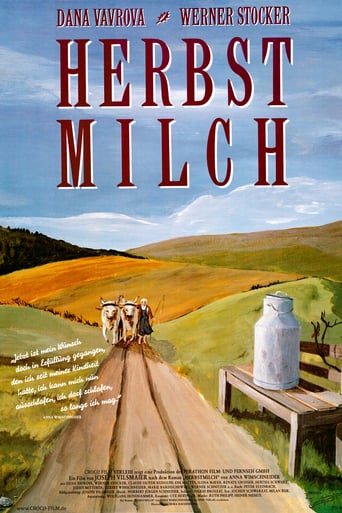With the death of her mother, eight-year-old Anna ends her childhood: From now on, she has to look after the nine-member family. Deprivation-rich years, which also find no end when Anna marries: Her husband Albert must be a soldier in the Second World War, and the pregnant Anna has to work hard in the farm and care sick relatives. Lonely and exposed to the harassment of the tyrannical mother-in-law, she waits for Albert, with no certainty that he will ever return.
*Nếu bộ phận kiểm duyệt của chúng tôi phê duyệt phiên bản của bạn, nó sẽ được thay thế và bạn sẽ được ghi công là tác giả của văn bản.
Năm:1989
Thời lượng111 phút
Thể loạiPhim Chính Kịch
Các quốc gia sản xuấtGermany

